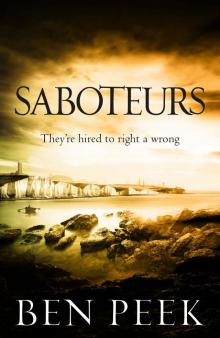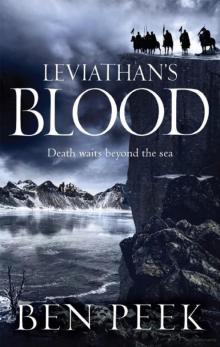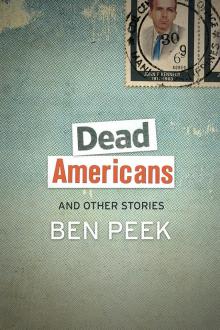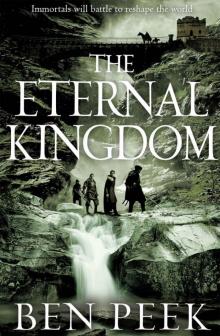The Eternal Kingdom (The Children Trilogy Book 3) Read online
Page 3
Ayae did not know why. She did not know then, and she did not know now, why the Keepers and the creatures that had emerged from the ocean did not swarm onto the shore. She did not know why they had not killed the people there.
What she knew was that, by morning, the storm giant was gone, and so were the Keepers of the Divine and Se’Saera’s monsters.
In their wake, Ayae was numb. It was in such a state that she was summoned by the two people who would seek to claim Yeflam – or at least its shorelines. She had met them in the first tent to be erected. It was no more than canvas on wooden poles, but it seemed almost decadent when she stepped beneath it and approached Lian Alahn and Muriel Wagan.
The former was the head of the Traders’ Union, a tall, white-skinned man who, in cold and precise tones, did little to win over Ayae. The latter was the ruler of Mireea, a nation that had been lost to the Leeran Army nearly a year ago. She was a middle-aged white woman who pushed out in fleshy smears.
The tent had no walls, and men and women could easily drift close enough to listen to the conversations. In the confusion, anger and fear that drove the morning after Yeflam had been broken apart, many did, yet both Alahn and Wagan pretended that they had no audience and offered Ayae a place to sit. They had no chairs, only a blanket that covered the ground, but she took it anyway. For refreshment, they offered only sombre condolences for the loss of her friend.
‘It is Zaifyr’s death that we wish to talk about,’ Muriel Wagan had said, sitting opposite her, her unadorned hands folded before her. ‘More specifically, his brothers, Jae’le and Eidan. It is said that they are still here.’
‘They are searching for their brother,’ she had replied.
‘Is he—’
‘They are searching for his body.’
She found the words difficult to say, then and now. For weeks, she awoke expecting to hear that he had emerged from the ocean. She expected him to tell her this while he sat in her tent, his smile – that half-smile of his – on his face, his fingers touching the charms woven through his clothes and hair.
‘Jae’le is the one searching for him,’ Ayae had said to the two before her. ‘He and Eidan have made a small camp by the shore. They will not leave until he has found him.’
‘And Eidan?’ Lady Wagan asked. ‘What does he do?’
‘Sleep, I imagine.’ When she had left him, the stout man had lain beneath a thin blanket in a tent, his wounds tended to by the pitch-black shape of Anguish, Se’Saera’s first creation, and first betrayer. ‘He can barely walk.’
‘Will those two Cursed fight for us?’ Lian Alahn asked, suddenly. He used the insult for them that was popular in Yeflam. ‘Will they be part of our struggle? Will they take up arms against their sister and this new god of hers, Se’Saera? Will they help us repair the damage that they have done? Will they take responsibility for what their kin has done?’
‘You should ask them yourself.’
‘I visited them this morning.’
She smiled faintly. ‘I hope you did not speak to Jae’le in that tone, then.’
The leader of the Traders’ Union straightened. ‘He is not a god,’ he said, his voice rising not for Ayae, but for those outside the tent. ‘Just as Aelyn Meah was not a god, nor any of the Keepers. Se’Saera has made that clear to all of us and I will not be treated by any of the Cursed as if I was an inferior man.’
‘Lian.’ Muriel Wagan’s voice had a quiet chill. ‘Now is not the time.’
His mouth opened, but he swallowed his words. After a moment, he rose and walked out of the tent.
‘People are afraid, Ayae,’ the older woman said, after he had gone. ‘They have lost a lot. The two brothers of Aelyn Meah have lost much, as well, but people are afraid of what they will do. There are no answers to what happened between the Keepers or Se’Saera. The ocean only washes up the bodies of their friends on the shore. There are stories that the Keepers carried Aelyn away, that the storm giant flung Se’Saera’s creatures out into Leviathan’s Blood. There are others that say they fought together. We are struggling to make sense of it all and people need to be reassured. I would give that to them, if I could. I would like to be able to tell people that they need not be afraid. That Jae’le and Eidan are not like the Keepers. I have not spoken with Jae’le, not yet. I haven’t had the time. But Lian has, and his requests have fallen on deaf ears – due entirely to his behaviour, I am sure. I would appreciate it if you could speak to Jae’le.’
‘And tell him what?’
‘Do not tell him anything,’ she said. ‘Simply ask him to understand the fear around him.’
That was how she had become the unofficial spokeswoman for the two brothers, the face for a nation of three, if she included herself.
It was Eidan who had responded to the fear, first. In the months that followed, the months where nothing was heard from the Keepers or Se’Saera, and the camp became more and more defined until it lit the landscape she walked through now . . . in those months, it was Eidan who came out to interact with the people around him. He let his beard grow out to hide the healing scars that ran down his face – the black lines that could be seen like matted hair – but he could do very little about the limp that he walked with, or the curled, unusable state of his left hand. Yet, it was exactly those things that made him amenable to the people of the camp, and when he told them that he would begin to repair his creation, when he told them that he would fix Yeflam, not a single person questioned or doubted him.
The cart Ayae used to drive herself and Eidan into Yeflam was kept in the stables. The mercenary Kal Essa had been given the task of guarding the stores of food and the animals, and it was one of his men who greeted her when she entered the stalls. Jaysun – a tall, white young man – already had a horse attached to the cart and Ayae climbed into the driver’s seat, took up the reins and released the brake.
No one questioned her as she rode through the camp. She was not an unfamiliar sight in the early hours of the morning, and would not be when, a short time later, she and Eidan rode onto the bridge into the empty streets of Yeflam’s closest city, Neela. There, the roads led out into the black expanse where the ocean met the sky, the division between the two marked by the remains of a violence that no longer appalled her.
2.
For a moment, Bueralan Le thought that he was still in Ooila, that he lay in the night-lit remains of his mother’s house, asleep beside the smouldering fire he had built.
He knew that he was not. He was on Glafanr. Recently, he had stood on the deck as the orange light from the afternoon’s sun disintegrated along its boards. From high in the rigging, up in the crow’s nest, he heard a lonely flute. Its music had followed him through dinner as he ate alone and it had stopped shortly before he climbed into the narrow bed he lay on now. He knew then, even as he allowed the memory to take hold, as he allowed himself to be taken back, that he had not ridden up the overgrown, muddy road to his mother’s house. He knew that the light had not shone into his eyes. He knew that the pain he felt from the shift of the saddle as he rode was an old pain, a pain four months absent. The lack of strength in his good hand as he held the tattered leather of the bridle was no longer one he felt. The splints from his broken arm were gone. The tall grey horse that was now stabled beneath the decks of the ship no longer needed to take a slow, easy walk to the front door. It no longer had to stand patiently while he struggled to dismount. It no longer had to bear his weight as he straightened, the pain of his broken ribs sending sharp pangs throughout his chest as he did.
I should be dead. He might have said the words as he pushed the door open, or he might have said them to the horse, or he might not have spoken them aloud. With each step he took across the cracked tile floor, with each step he took past the debris – the corpses of butterflies mixed with the ash from the fire he had built – Bueralan repeated the words. I should be dead. Before the remains of the fire, he began to emphasize a word: I should be dead. That, he knew, would be right. Th
at would be fair. He had been beaten in battle. He had met a better swordsman. Death was the price a mercenary paid when he or she met their better.
He was not a stranger to death. His professional life ensured that, but so did his personal. He had watched his mother die in that very house, a death different to the ones he became so intimate with later. Bueralan never forgot how, on the night she died, he had taken his mother’s still hand and sat beside her. Her dark skin had been pale next to his and there was no warmth in her body. He would not say that she looked at peace – he would not say a single person who died looked at peace – but he knew that she was done with her physical pain.
His mother had made it clear that she did not want her soul kept in a glass bottle, that she did not want to be reborn at the expense of another. ‘That is the greatest crime of our nation,’ she had said. ‘We take because we are afraid, and in doing so we punish those who have not yet drawn breath.’ She was not afraid of death, she said. She was not afraid of what happened after, even though there were no gods to take her by the hand, to usher her to paradise. ‘We must not be frightened of death,’ she said, more than once. ‘It is a natural state for all of us.’
The witches had told her that her spirit would linger in the world, but she had not been scared of that, not in the way others were.
As a child, Bueralan had been taught by others – by his father, by tutors – to fear death. They had said to him that if a witch did not claim him shortly after his death his future would be one of oblivion. As he grew older, he had not believed them: he saw how death had become an industry in Ooila, one motivated by greed and by power. His mother had been right when she said that. Yet, Bueralan learned, she had also been wrong. In death, you did suffer. In death, you were subjected to generations of hunger and cold, and the slow, but inevitable loss of your sense of self. That was the legacy of the War of the Gods. Even knowing that, as he did now, he remained his mother’s son. Returning to Ooila had strengthened that bond. It had reminded him that an important part of death was to make way for another life. You were part of a cycle. All living beings were part of the cycle.
He had forgotten that when the new god Se’Saera handed him Zean’s soul, when she had promised that he could be returned.
In his mother’s home, the sword that he had carried from Leera had lain near the fireplace. It was a straight blade: simple in design, plain but solid in its make. It had been given to him by an old white man without shoes when he stepped out of the Mountain of Ger. Given to him before he knew that his friends were dead. Before he met Se’Saera. Before it became clear to him that he was no longer part of the cycle of life and death.
You are god-touched and you cannot die, Aela Ren had said. Not until a god allows you.
In the dark, stuffy room of the ship, with the sword beneath his narrow bed, Bueralan opened his eyes.
He should have died, but he had not. The god Ger had taken his mortality away in a final act that offered no explanation. Samuel Orlan had tried to tell him what had happened, but he had not understood it until the Innocent, Aela Ren, had broken his bones and left him lying on the ground. Not until he been left in an empty barn with his injuries, left knowing that his mortality was not his own, that the equality he shared with other men and women no longer existed in him. He shared a life now with men and women thousands of years old, and who, in their immortality, wore the faintest impression of the gods they once served. It had not been until he spent the night in the house of his mother that he had realized how what he had tried to do with Zean was what Ger had done to him.
In the bed across from him, he heard Zi Taela stir and cough and, quietly, he pushed himself to his feet.
3.
‘Don’t light the lamp,’ she said. ‘Please.’
‘What if I open the window?’ he asked, softly. ‘It’s still dark out.’
‘A little fresh air would be nice.’
Bueralan navigated the small cabin – no more than two beds pushed against opposite walls, split by a tiny table – to the small shutter that lay between them. The dark slick of the ocean greeted him when he pulled it open, along with the smell of blood and salt. Stepping from the window, he allowed a line of moonlight to slip into the room. It was by that light he saw Taela. Her large, dark eyes dominated her slim face, but it was not until she pushed her black hair back that he met her troubled gaze. She sat at the edge of the bed and, when she straightened, he could see the curve of her light green shirt and the ominous line of her pregnancy beneath it. He thought that she was more pronounced than other women were at sixteen weeks and he had tried to tell himself that it was because Taela was a thin woman, built from long, slim limbs, with delicate shoulders and hips . . . but when he thought that, his mind always returned to the sight of Se’Saera’s hand forcing itself into Taela’s mouth, the soul of another man in her hand, the first act of a newly named god.
‘You shouldn’t stare,’ she said. ‘It’s rude.’
‘There’s not enough light to know if I’m staring. You can’t accuse me.’
‘I just did.’ A series of coughs burst from her. When the last had finished, she said, ‘Is there water?’
It was on the table. The moonlight caught the white lines of his tattoos as he poured a cup for her, revealing straight, unbroken and unmarred black skin. ‘How do you feel?’
‘Fine.’ She took the cup, drank deeply from the warm water. ‘Okay,’ she said, once she had finished. ‘No, I feel awful.’
‘Sick again?’
‘No.’
‘Then what?’
‘I feel . . .’ In the moonlight, her face looked fragile. At any moment, she could begin to crumble beneath an unseen but known weight. ‘At times, I feel as if something is scratching at me,’ she whispered. ‘I can feel fingers against my stomach. Strong little fingers with sharp nails, trying to catch a piece of my flesh to tear a hole, to escape the prison it is in.’
‘Zean wouldn’t do that.’ It was all he could think to say. ‘If he’s there—’
‘What if he isn’t?’
‘He is.’
She lowered her head and, in doing so, folded into herself. ‘I don’t want this.’
‘Zean wouldn’t want it, either,’ Bueralan said, quietly. ‘I know that. When we reach land, we’ll find a way to stop it. All of it.’
‘He’s your blood brother.’
He did not disagree.
‘There’s no way to stop it,’ Taela whispered, folding her hands around the cup. ‘She won’t let us stop it.’
She was Se’Saera. The god was not yet aware of all their conversations: they had discovered that she could only hear you if her name was used, but that knowledge that not been gained kindly. Se’Saera had stopped Taela’s first attempt to abort the child in Cynama because the other woman cursed her beforehand. Bueralan had heard after it happened, after he had spent the night in his mother’s house and ridden into Cynama. He and the tall grey had approached the devastated city in silence. The air was heavy with sulphur and smoke, and the canals that cut through the streets were full of sluggish lava. It would not be until later that he heard how Joqan, one of Aela Ren’s god-touched soldiers, had coaxed the eruptions and fires out of the earth. Until then, he rode past the burned buildings and black paths with a numbed sense of horror. He saw no one on the streets, neither in terms of survivors nor one of Aela Ren’s soldiers, and the absence of either chilled him despite the oppressive heat. He might have turned around and left the city, but the horse never hesitated in its ride to the centre of Cynama. It did not stop until it was outside the remains of the First Queen’s Palace.
Samuel Orlan had stood alone before it. He was a small, bearded, roundish white man whose hair was coloured by greys and silvers and he wore the same stained clothes of brown and white that he had worn for the last week. As Bueralan’s horse approached, he did not turn his attention from the once elaborate building.
‘Where is Ren?’ the saboteur asked.
&
nbsp; ‘He is here.’ Orlan tugged at his beard. ‘They are all here, searching tunnels beneath the ruins. Taela is there as well. She took her. Do not say her name, I beg you.’
It would only be later that it was properly explained to him, but at the time, he shrugged and asked, ‘Did they find the Queen, then?’
‘No,’ the other man replied. ‘She’s not here.’
‘She escaped?’
‘I would not think so.’ Orlan’s weathered blue eyes met his. ‘But no one has found her body yet, so perhaps there is hope.’
‘Hope is not something we should hold to.’ He slid painfully from the saddle. ‘We’re nothing but prisoners, old man. Aela Ren told us both that when he collected us from that barn.’
The cartographer was silent for a moment, his fingers pulling tightly at the end of his beard once again. ‘Do you see the stones on my left?’ he said.
He meant the rubble of a broken pond. They were stained with dried blood, but he had seen other stains throughout the city. ‘What of it?’ he said.
‘That is where Taela tried to abort her child. Ren and his soldiers camped in this square last night. He left me on the edge of it like a dog, but even still, I was woken up by a scream in the heart of the camp. A scream from here – Taela’s scream as our new god dragged her out of the tent, her legs stained with blood.’
Bueralan closed his eyes and tried not to imagine it.
‘She dragged Taela before Ren and his soldiers and told her that it did not matter what she used – be it a knife or herbs – she would be unable to harm the baby growing inside her.’ His voice was heavy, weighed down by what he had seen. ‘She said that Taela carried her first true creation. Nothing would stop the child from being born.’

 Saboteurs
Saboteurs The Godless
The Godless Leviathan's Blood
Leviathan's Blood Dead Americans
Dead Americans The Eternal Kingdom (The Children Trilogy Book 3)
The Eternal Kingdom (The Children Trilogy Book 3)